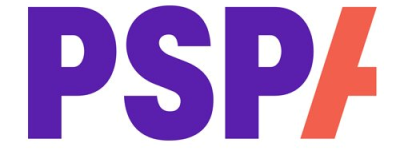INFORMATION FOR YOUNG PEOPLE
Learn about PSP & CBD and what support is available
Progressive Supranuclear Palsy and Corticobasal Degeneration are complex brain conditions.
Over time, the conditions can cause problems with how a person moves, speaks, thinks, and behaves.
The information on this web page aims to help young people who may have a family member who has been diagnosed with PSP or CBD.
Below you will find explanations of what the two conditions are, how they affect people and what support is available to someone diagnosed and to you too.
Learn more about PSP & CBD by reading the information below.
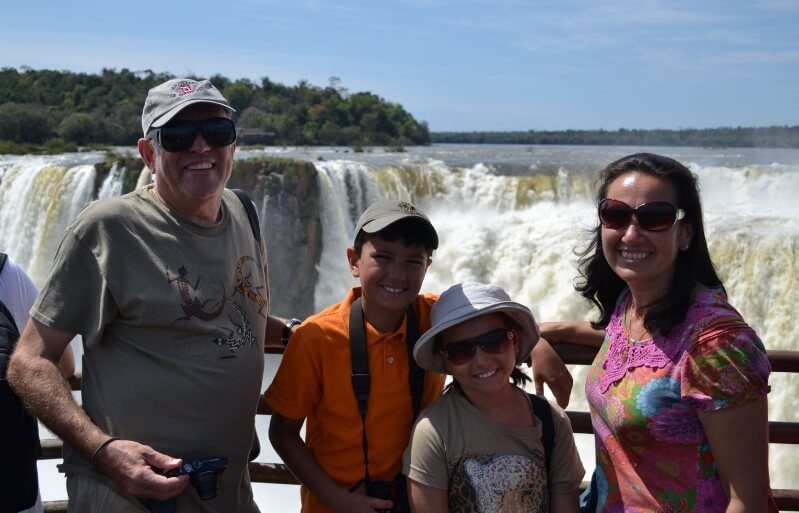
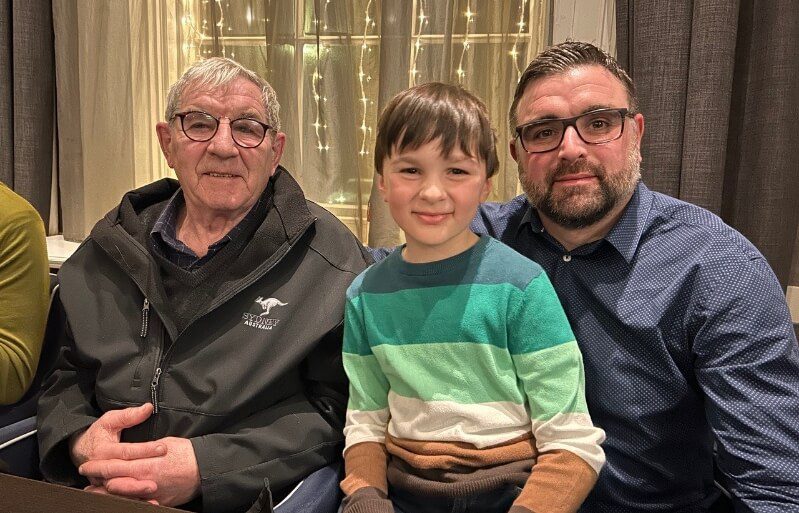
INFORMATION ABOUT PSP & CBD
What is PSP?
PSP stands for Progressive Supranuclear Palsy.
It is a disease where things are going wrong in the body.
PSP‘Progressive’ It means it will get worse over time.
PSP‘Supranuclear’ It is the part of the brain that is affected and changed by the disease. The area is above the brainstem at the back of the head.
PSP‘Palsy’ It means there is a weakness or problem using some muscles.
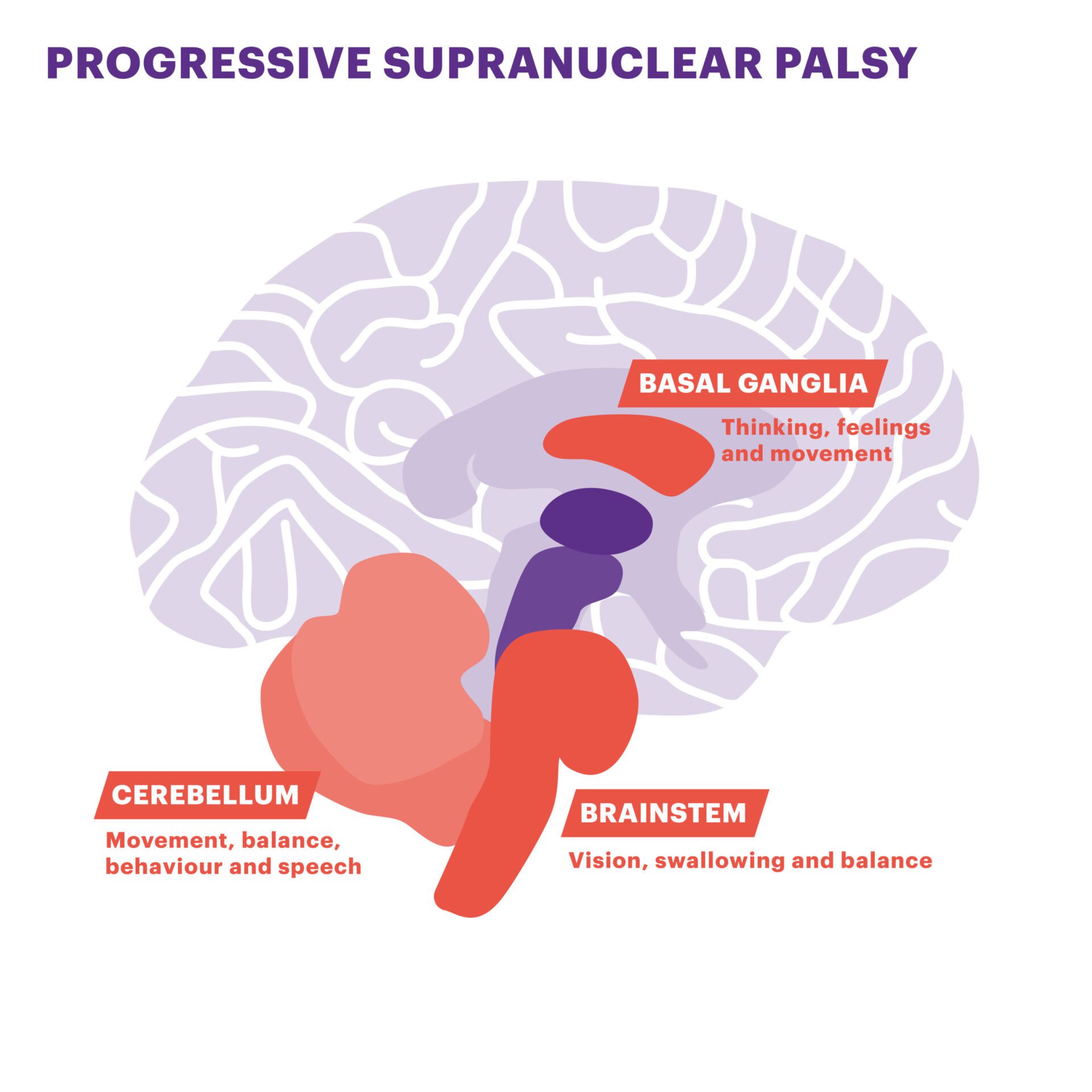
What is CBD / CBS?
CBD stands for Corticobasal Degeneration.
CBD is sometimes called CBS Corticobasal Syndrome, it a just a different name, they mean the same thing.
It is a disease where things are going wrong in the body.
CBD‘Corticobasal’ It means some parts of the brain get smaller and don’t work anymore deep inside the brain, as well as at the surface of the brain.
CBD‘Degeneration’ It means something is breaking down and getting worse.
CBS‘Syndrome’ It means a group of signs (things that we can see) or symptoms (things that people feel), which are happening together and show that a person has a disease.
Like PSP, CBD is progressive and gets worse over time.
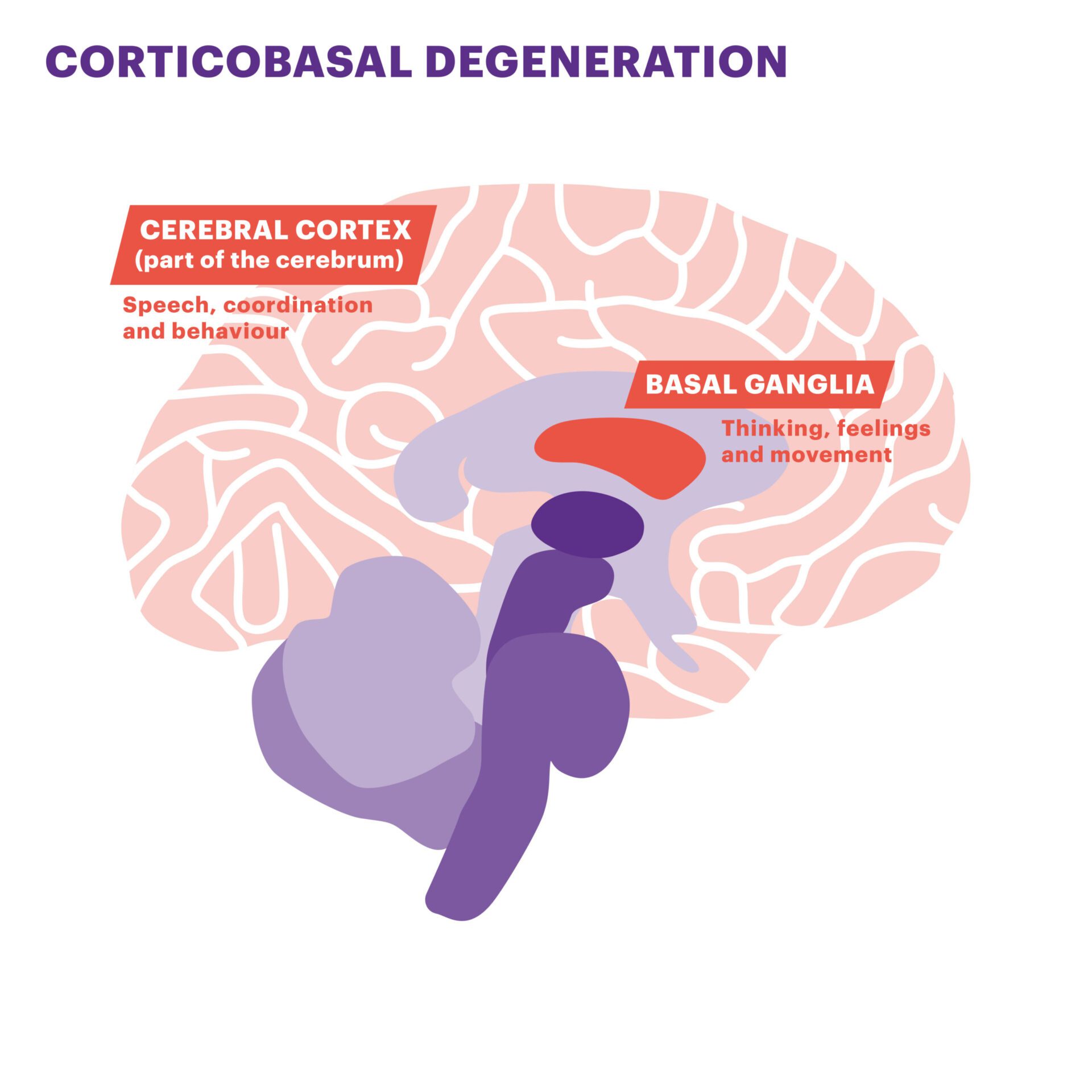
What does PSP & CBD effect?
Not everyone with PSP or CBD will have the same problems, it can change what it looks like and the order they can happen in, from one person to another.
Here is a list of some of the most common signs:
Movement
People with PSP or CBD fall over as they can lose their balance. They might think they can still do things that they can’t, or that might be unsafe. They may not realise there is a danger like a rug sticking up, or they can’t react fast anymore, they could move too quickly or too slowly. They might shake, or their arms, legs or head could move suddenly. They may be stiff because their muscles get tight so they can’t straighten out. Also, people with CBD often have one side of their body that is stronger than the other, sometimes this can happen to people with PSP too. They could start walking with a stick or a frame, using a lift to get upstairs, a ramp to come indoors, a wheelchair, or stay in bed.
Speech
It can be hard to make the right shape with their mouth to make sounds or get words out. People might talk slowly, or more quietly. Words may come out together and be unclear, sounding what we call ‘slurred’. It can get difficult to speak so some people might not talk at all. Sometimes people use different devices to help them, like boards with picture or words to point at and show others what they want to communicate or have special technology.
Swallowing
People can find it a problem to swallow their food and saliva (spit), this can lead to dribbling that they can’t help doing. People will often have food cut up or made softer or they might use special knives and forks or have help to eat. They might drink with a straw or have thicker drinks to make it easier to swallow and not cough. Some choose to have a tube called a peg feed, fitted into their stomach that gives all the food they need.
Sight
People with PSP or CBD might stare at one point in front of them or be looking up much of the time because it can be hard for them to move their eyes. People’s eyelids might drop closed or be hard to keep open. They may not be able to see properly because of these things, which can also cause them to fall more.
Dealing with Information
How we take in information to our brains and deal with it is called ‘cognition’. The skills of thinking, sorting through thoughts, making choices, remembering things, knowing who people are or what to do, spotting danger, doing things in the right order, and saying what we mean, can be affected by PSP or CBD.
Emotions
Emotions are feelings that we all have like anger, fear, joy, sadness, guilt, shame, or disgust. People with PSP and CBD can be different because of changes going on in their brain, or because they are trying to deal with having a disease that is making their life different. Your loved one might get sad or tearful, they could get frustrated and shout, they could be frightened by what is happening. They could be aware of what is going on with their emotions or they might not.
Listen to Emily’s story
Why didn’t people know what was wrong at the start?
PSP & CBD are rare so not many people have it and not many adults will have seen it before. It can get missed or called something else at first that might be wrong. There is not a test yet to show that people have PSP or CBD, so we have to wait and see what signs there are to show that they have it.
Who can help my person?
There are lots of people who can help your loved one.
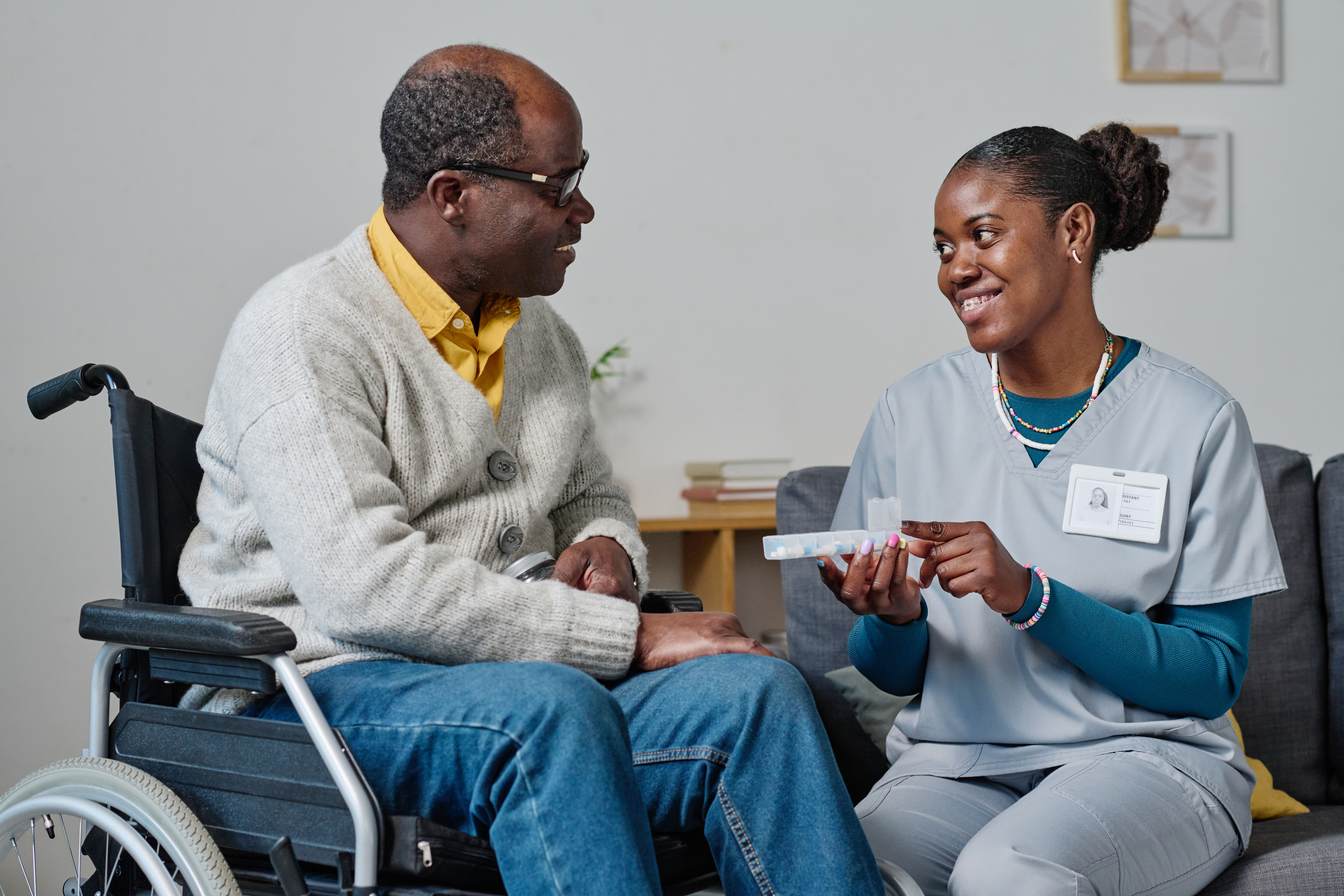
Carers
There are different types of carers. You and your family might be giving care and support to someone with PSP or CBD, or there may be paid carers who come in and help. Sometimes people have live-in carers who take turns with others to stay with your loved one and give them the care they need. There are also care homes, that can be called residential or nursing homes. People can stay for a short time called respite, which means having a rest or a break. They could also go to live in a care home all the time.
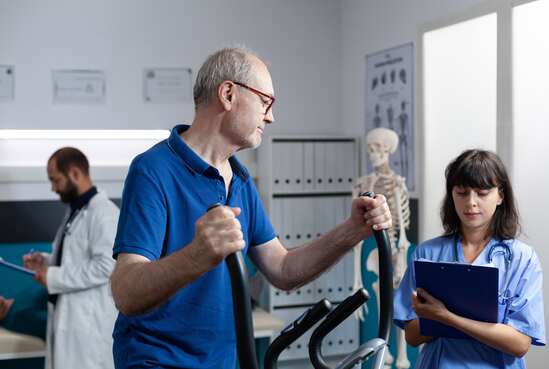
Physiotherapists
Support with movement like standing up, walking and sitting down, strength, stamina (the power to keep going and do an activity), balance and co-ordination (doing things with the right parts of the body at the right time).
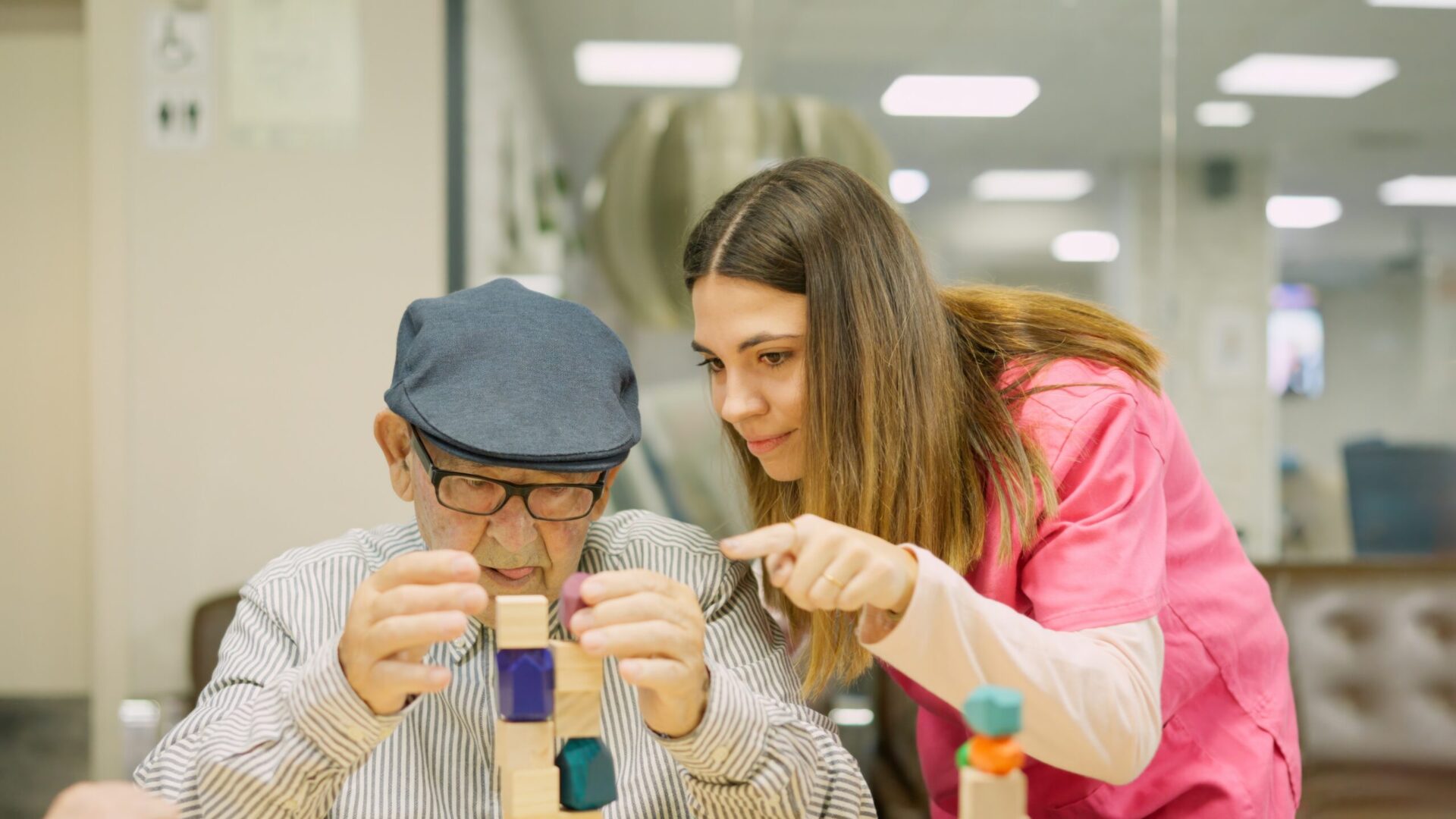
Occupational therapists
Look at skills and how we can do the daily activities we want to do like washing, dressing, brushing teeth, making food, looking after pets, hobbies (fun things they like to do), going out and so on. They provide ideas about how to do things, give equipment, make changes to rooms and give carers ideas to make life easier.

Doctors
This can be the local doctor, called a GP or a brain doctor known as a neurologist. Neurologists are the doctors who will do tests and tell the person if they have PSP or CBD.

Nurses
Are people who give care to those who are unwell, hurt or who have health problems. They look at people and check the signs that are happening and give help. Some nurses have special skills in working with another problem like PSP & CBD called Parkinson’s Disease and will also support people with PSP & CBD. They are called Parkinson’s Disease Nurse Specialists.

Dietitians
Helping make sure people get the right amount and type of food and drink they need.
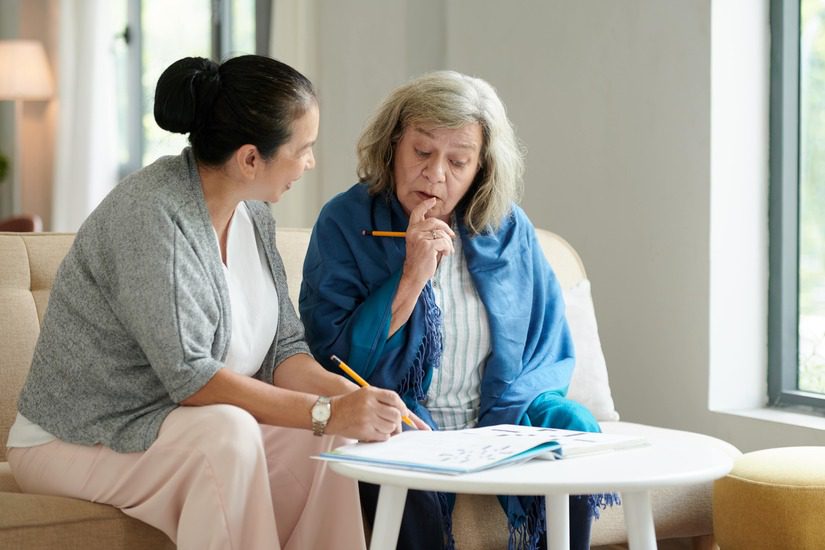
Speech and Language Therapist
Helping people to communicate – to talk or use equipment to tell or point out what they want to say when they can’t. Speech and Language Therapists know all about how our mouths and throats work so they also help people with swallowing problems.
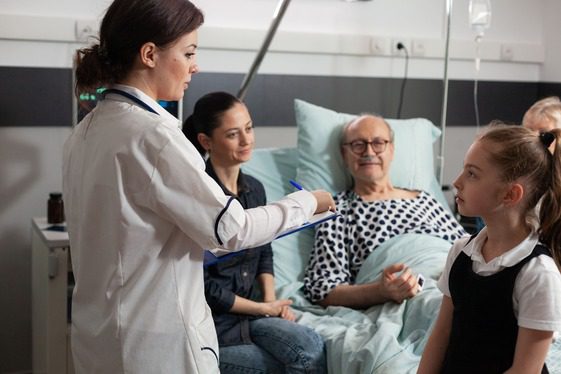
Palliative Care Team
Expert care for people who are coming towards the end of their lives. This is done through a team of different types of staff, who give physical, emotional and practical support and advice to people with PSP or CBD and their families.
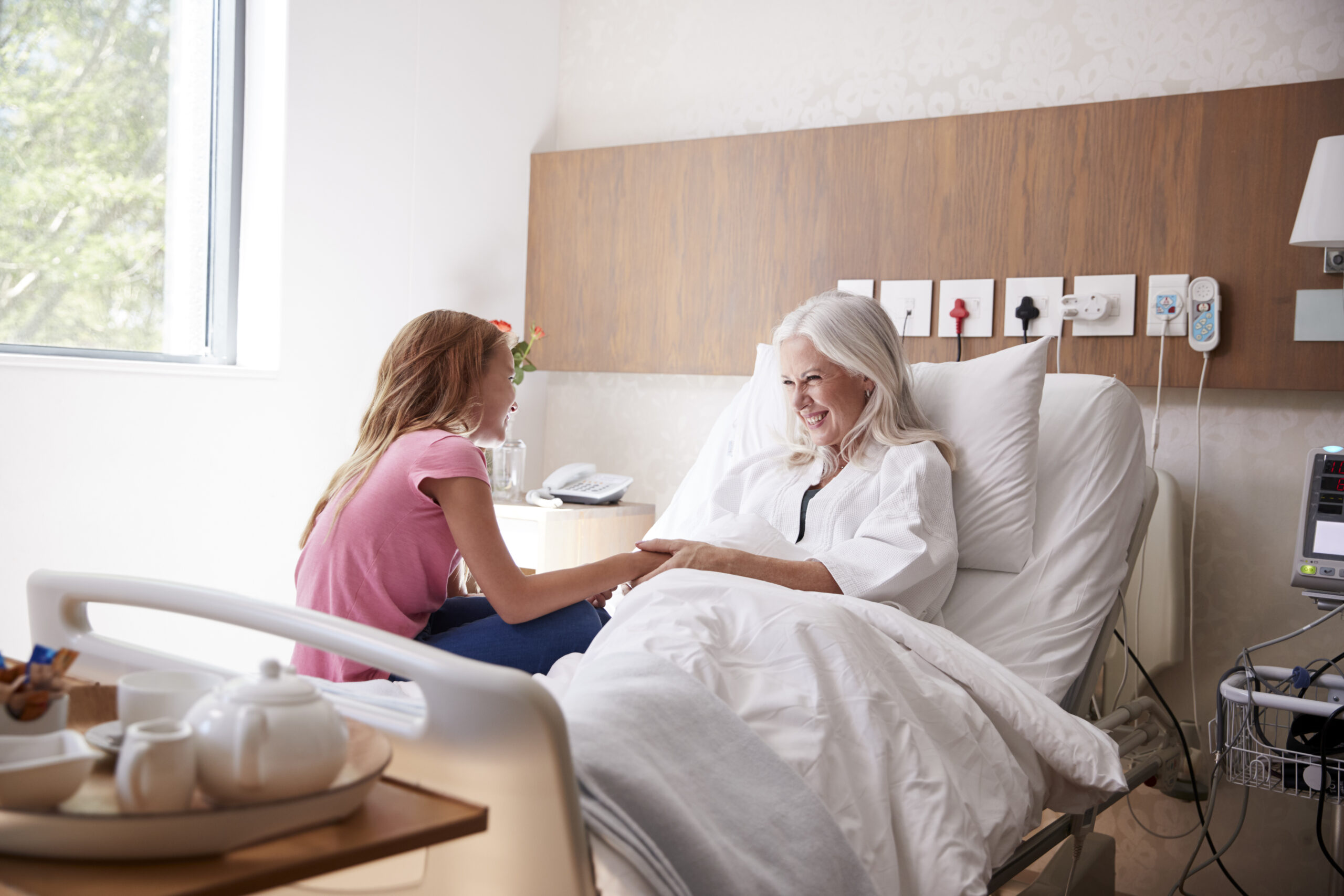
Hospices
Give life-long support to people with conditions they will always have. They can help in the community, or at the hospice, where people can go for a day and meet others or stay to have care. Hospices are also there to help people be comfortable at the end of their life.
Why is there no cure and when will there be a cure?
Scientists, researchers and doctors are looking at why PSP & CBD happen to some people and not others. They know that there is a material called ‘tau’ that plays a part.
Tau is something we all need to keep our brains healthy, but when there is too much, it builds up and stops things from working like they should.
Researchers aren’t sure why this is and are trying to find out why. When we know more about what causes PSP & CBD, they can work more on a cure.
How can I help?
Listen to Coen’s story
What help can I get?
If you help to look after someone in your family with PSP or CBD, you will be thought of as a young carer.
Adults want to make sure young carers get support too. You or your family could ask for a ‘young carer’s assessment’.
Having an assessment means talking to someone and looking together to see what could support you. Assessments are made by social workers. A social worker’s job is to make sure have what you need at home and at school. Teachers can also make things easier for you with extra time to do homework or giving you space to chat if you are finding home or school life hard.
Caring for someone can make you feel upset, sad, angry or lonely. You don’t have to do this by yourself. There are young carers groups where you can meet others your own age who are also helping someone in their family, where you can make new friends, talk about how things are if you want to, and enjoy fun activities. Every area of the UK has to provide young carers support and all schools need to look out for young carers, so there should be some local help for you.
DEVELOPED IN PARTNERSHIP WITH YOUNG PEOPLE
The information on this web page has been developed alongside our young people’s advisory group. This group is made up of eight young people who have shared their own experience of having a family member living with PSP & CBD. Some have even shared recordings of their personal experience to help others better understand the conditions.
The members of the group are:
- Emily
- Coen
- Charlie
- Jessica R
- Jessica T
- Aurelia
- Paul
- Kian C.
